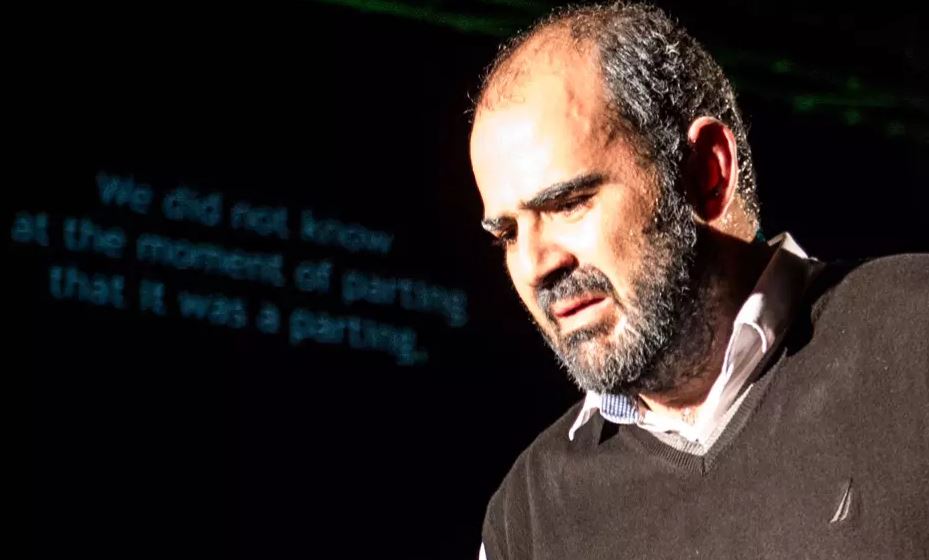When the actor Amer Hlehel wrote his one-man play Taha, about the life of the late poet Taha Muhammad Ali, he decided it would end with Taha’s poem “Revenge”:
At times . . . I wish I could meet in a duel the man who killed my father
This killer is an Israeli, but as the poem goes on its protagonist comes to see him as more than just an oppressor and occupier. In a time of political polarisation and violence, it is not a particularly fashionable message.
“This is the role of the artist and intellectual,” Hlehel tells me. “We have to take a step back and ask what we want to be as a people if we win – do we want to be oppressors in our turn?
“Taha started writing poetry in his 50s – at the time of Israel’s 1982 invasion of Lebanon – and at that age I think you begin to understand your enemy.”
…
Of course Palestinians learnt over decades and are still learning about all the administrative and military means by which land can be disconnected from those who live on it. It was in the Galilee in 1976 that Palestinians who had become citizens of Israel first marked Land Day, in a bid to insist upon their rights as indigenes.
“We don’t want people to feel sorry for us,” Hlehel tells me. “We want people to listen and discover that we are like them. This is my story – do you have something against it? Why?”
I remind him that when the Gaza-based doctor Izzeldin Abuelaish lost three daughters and a niece under Israeli fire in 2009, a simple enough story on its face, there were those in Israel who insisted there must be a sinister side to it that we weren’t being told.
“The Israelis are in conflict with us – of course I expect them to defend their own conduct. But they are not the audience I am expecting to come. It is those outside … I want to bring back the world to hear us.”
Read the write-up by Maher Mugrabi, features editor at The Age, in The Age and The Sydney Morning Herald.

